Economics of Innovation
Optimal innovation balances willingness and ability to pay with the benefits of future R&D. Our wide-ranging programme aims to promote innovation in health care, increase our understanding of its value, and encourage R&D. New models of innovation should streamline development, reduce costs, and speed patient benefit.

Abolishing Pharmaceutical Rebates in the US? Looking at the Trade-Offs
12 March 2019
The combination of rising drug costs in the US and increasing financial stress for individual patients has triggered intense national concern. One target has come under…

The World Needs Better Drugs for TB. The Center for Global Development and OHE Have a Proposal and We Need your Feedback
5 March 2019
Innovation is a critical tool in the global fight against tuberculosis (TB), an infectious disease that primarily affects the poor and vulnerable and ranks among the…

Data Governance Arrangements for Real-World Evidence in Japan
1 September 2019
In 2015, OHE Consulting published a report on data governance arrangements for real-world evidence (RWE) covering the specifics under which RWE was used in eight different…
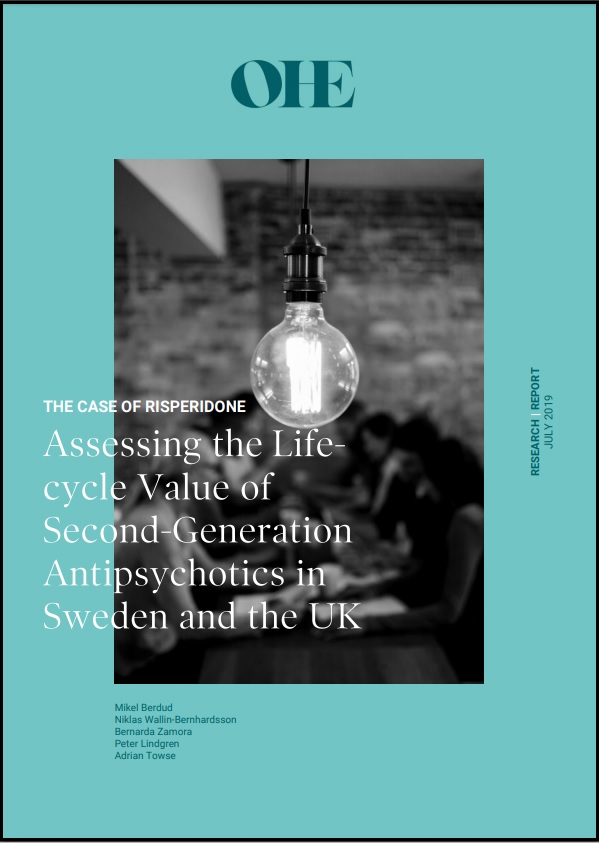
The Case of Risperidone: Assessing the Life-cycle Value of Second-Generation Antipsychotics in Sweden and the UK
1 July 2019
The present work aims to assess the life-cycle value of innovative medicines based on the example of Second-Generation Antipsychotics (SGA). Assessing the entire life-cycle of SGA,…
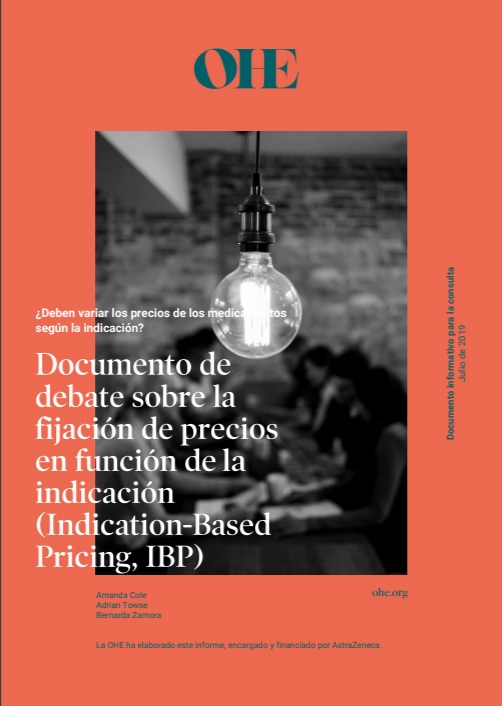
Documento de debate sobre la fijación de precios en función de la indicación (IBP) ¿Deben variar los precios de los medicamentos según la indicación?
1 June 2019
Cada vez más, los avances científicos desarrollan nuevas medicinas que permiten mejoras en la supervivencia y calidad de vida para diversas indicaciones terapéuticas. La fijación de…
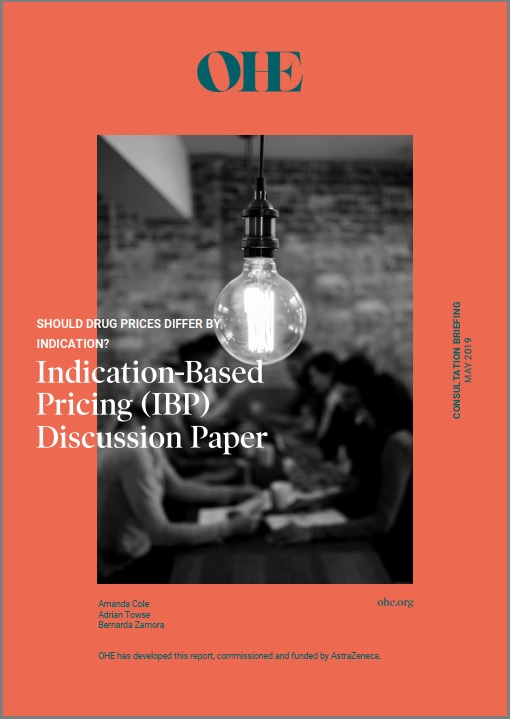
Indication-Based Pricing (IBP) Discussion Paper: Should drug prices differ by indication?
1 May 2019
Increasingly, scientific advances are delivering new medicines that deliver improved survival and quality of life across multiple treatment indications. Indication-Based Pricing (IBP) has been proposed as…
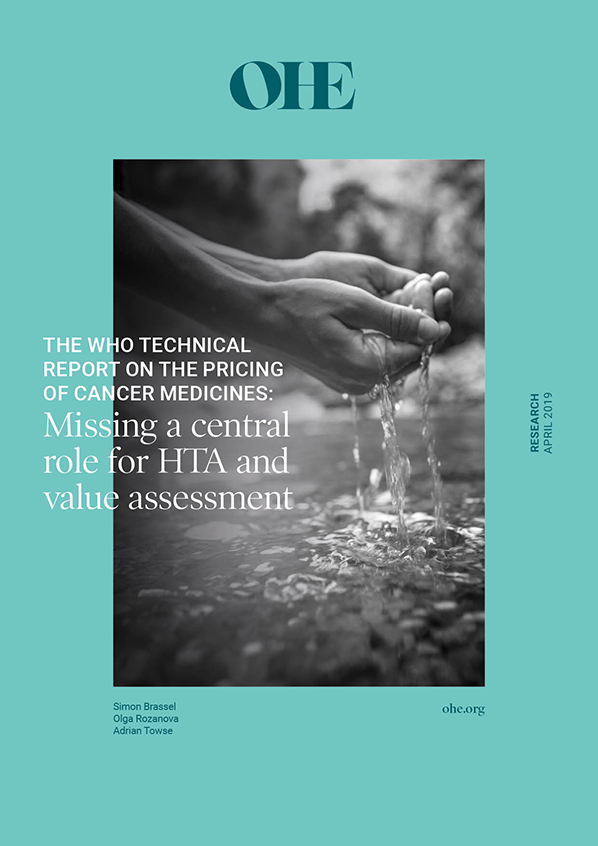
The WHO Technical Report on the Pricing of Cancer Medicines: Missing a central role for HTA and value assessment
1 April 2019
The WHO Technical Report: Pricing of cancer medicines and its impacts (“the Report”) was published in order to address requests made in a resolution adopted by…
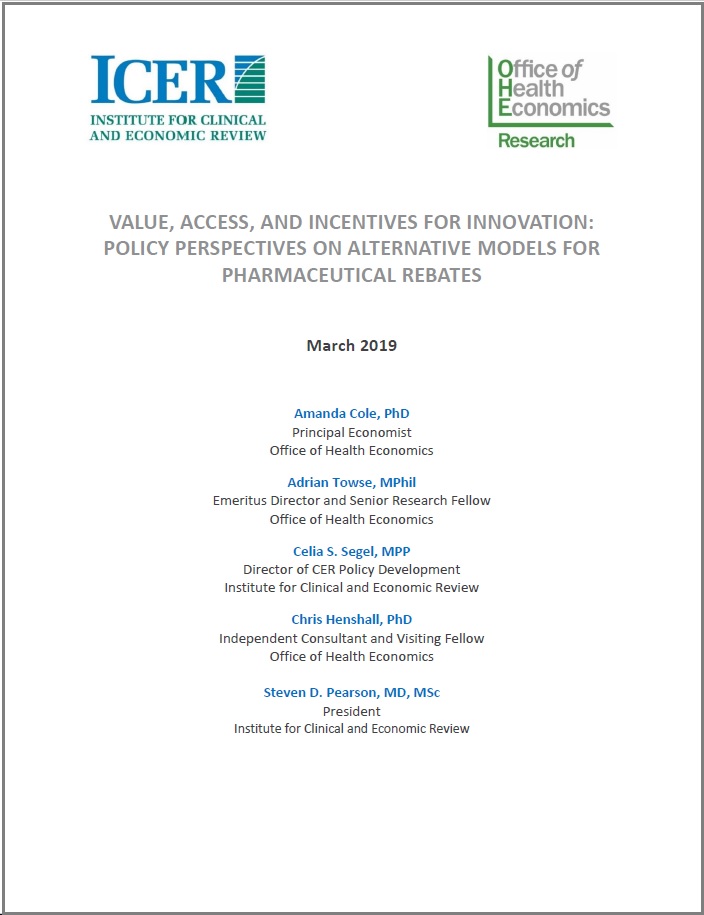
Value, Access, and Incentives for Innovation: Policy Perspectives on Alternative Models for Pharmaceutical Rebates
1 March 2019
OHE Research Paper 19/02: The combination of rising drug costs in the US and increasing financial stress for individual patients has triggered intense national concern. One…
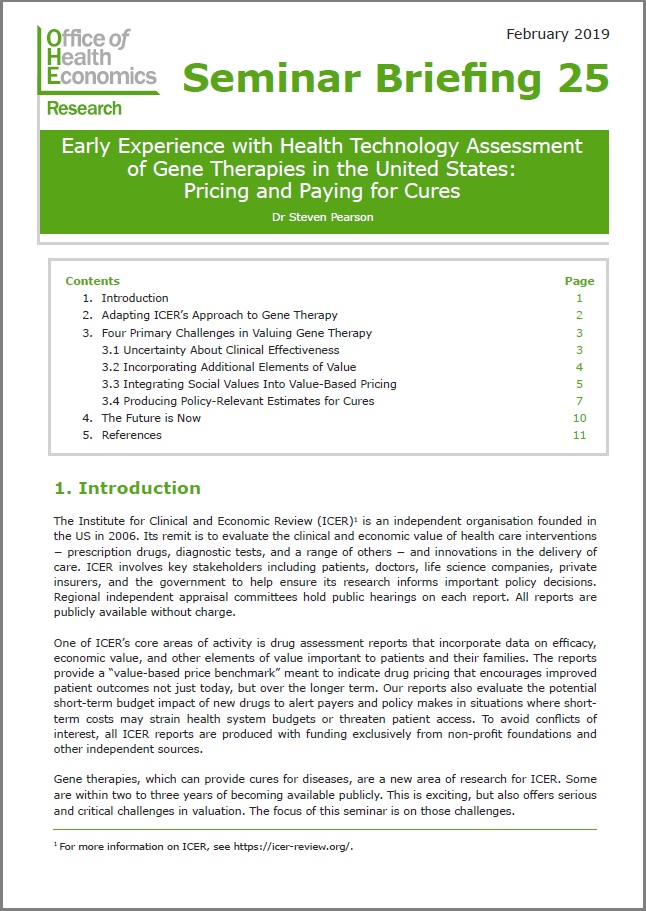
Early Experience with Health Technology Assessment of Gene Therapies in the United States: Pricing and Paying for Cures
1 February 2019
Gene therapies, which can provide cures for diseases, are a new area of research for ICER. Some are within two to three years of becoming available…